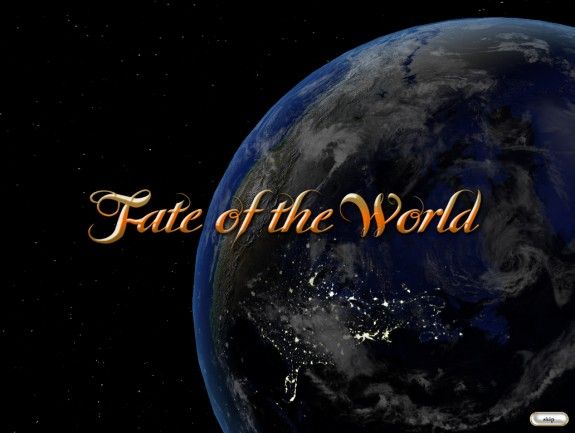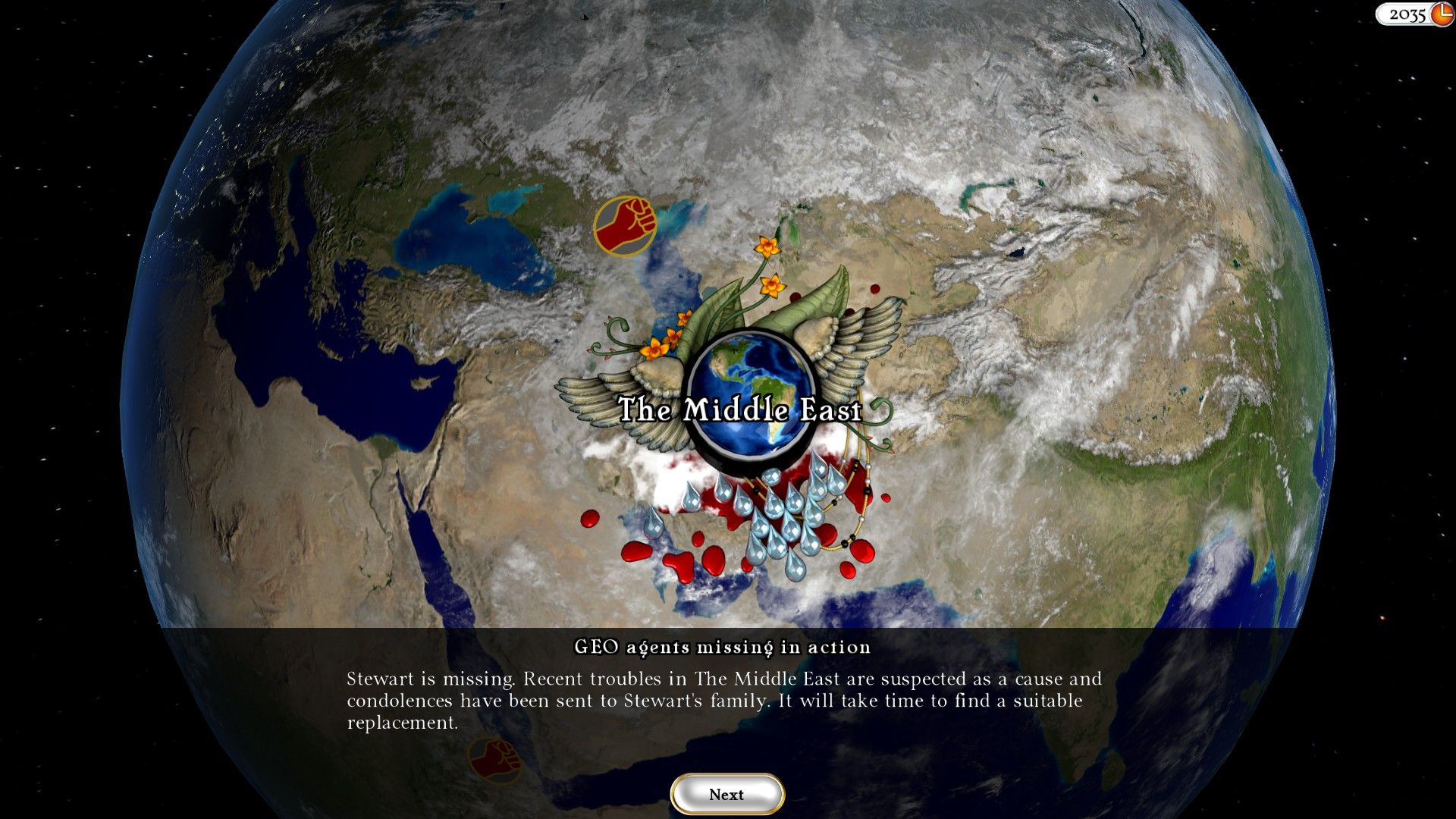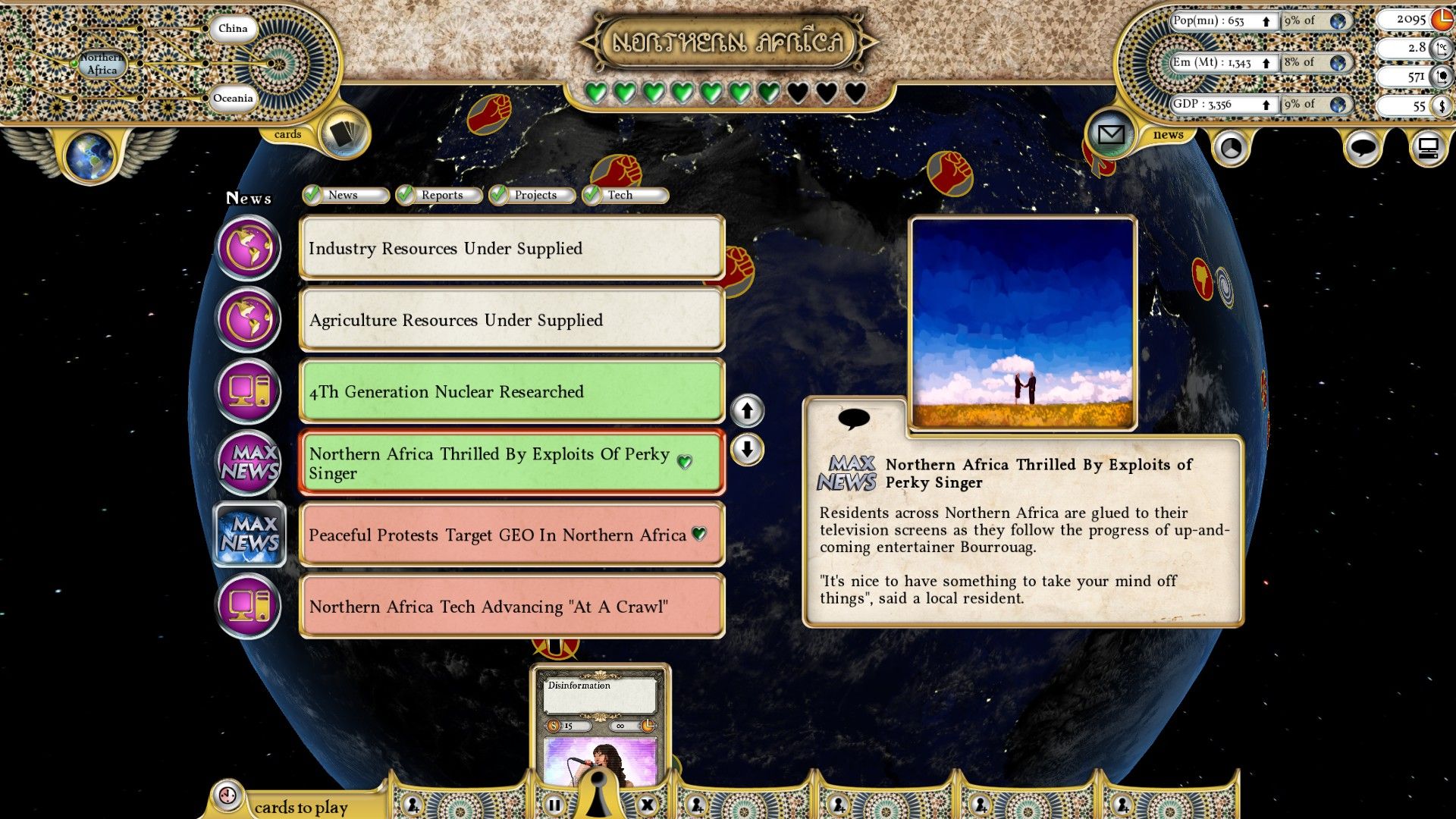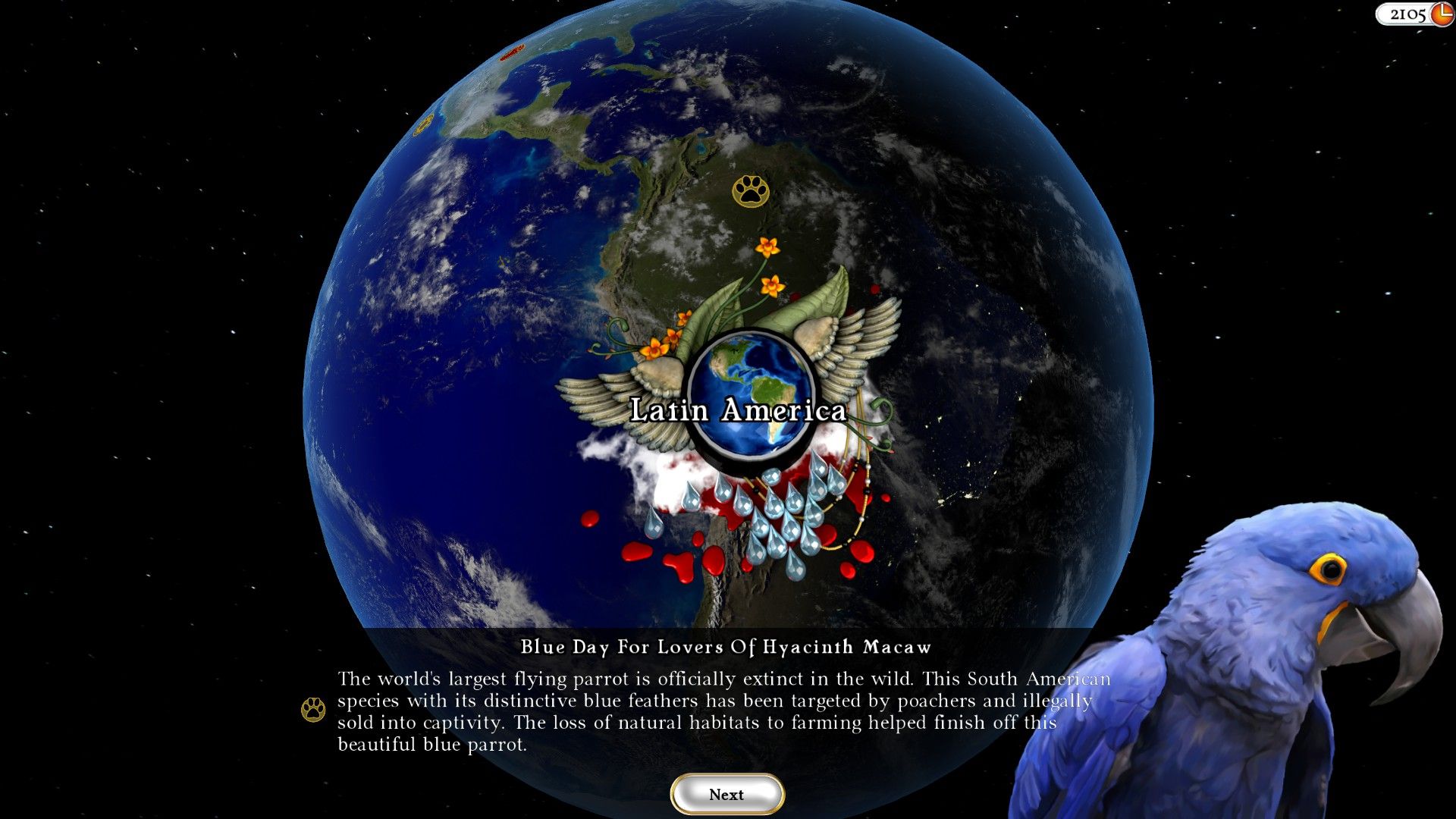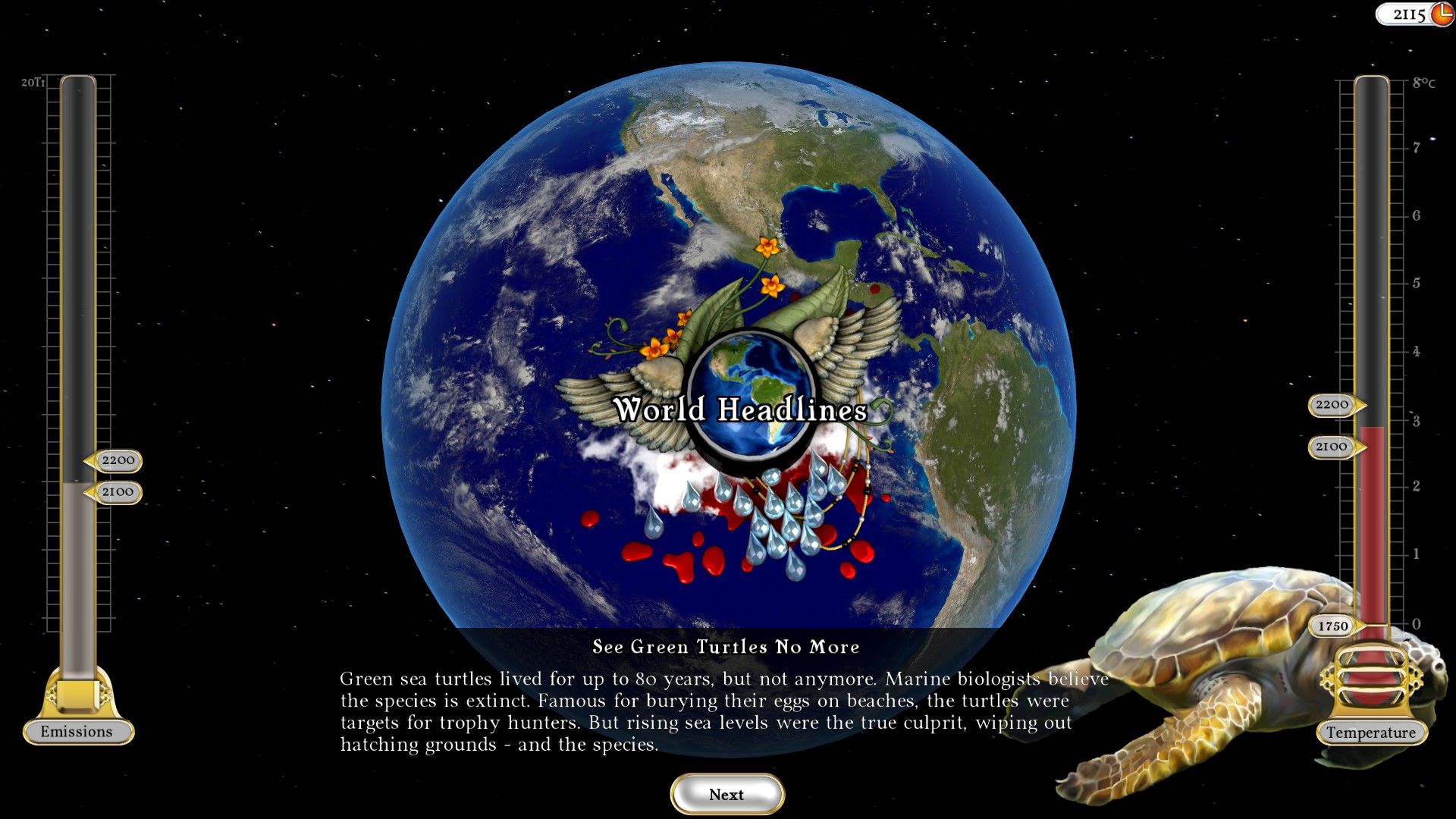The year is 2065, and the black rhinoceros has just gone extinct, thanks to rising temperatures and drying habitats in Southern Africa. The Middle East is starving, thanks to the leaders that decided to withhold any foreign aid, amidst heated arguments with their political rivals.
Thirty years later, the United States has turned into a barren wasteland, thanks to a massive energy shortage and financial collapse, due to the full commitment to renewable energy sources and ban of conventional oils. The walrus is now extinct in Russia, and Japan has erupted into civil war and mass famine thanks to a total crop failure. The only stable country in the world is Australia, who happens to have the most advanced technology and most efficient energy systems. Before banning the GEO altogether, the Middle East has kidnapped two of the GEO agents stationed there, who're both presumed dead.
This is Fate of the World, where the moral of the story seems to be that we're screwed, no matter what we do, and it is perhaps the most enthralling game I've played so far this year.
To put it simply, Red Redemption's Fate of the World is a turn-based strategy card game, with Earth's future as the backdrop. You put your cards into play depending on the conditions and/or problems that are set in front of you at the beginning of every turn, and once you put things into action, the world progresses with the immediate results of your actions, upon which you'll make more plays based on those results. It may sound utterly bland and simplistic, but there's so much to Fate of the World that's deceptively engaging and captivating.
In terms of the actual plot, you're the leader of the fictional GEO,whose task is to simultaneously lessen Earth's reliance on fossil fuels and prevent global warming from wrecking the environment. In order to accomplish this, you need to play the right cards in the right nations, depending on what they need. So if Northern Africa is going through terrible wildfires, you can play a card that enforces better preparedness for wildfires and droughts. That's simple enough, but the true game excels in portraying in the problems that aren't so linear, and the dilemmas that may arise from what you initially thought were good choices.
For example, Latin America just blew up in civil unrest all of a sudden in one of my campaigns, so I gave them some military assistance to help with that. That didn't work as well as I'd hoped, so I decided to kick things up a notch and fund some black ops for insertion into the country. Upon seeing that the bulk of the population wasn't pleased with their world leader at all, I decided a regime change was in order, and funded the black ops to do so by force. Sure enough, the former leader was ousted, but it turned out the newer one was just as militaristic and ruthless as the first one, if not more so, and the public realized they would've been better off with the previous leader.
The unpredictability of your actions extends to the many eventual problems stemming from over-reliance on fossil fuels as well. In one instance, China had the worst pollution in the world, making its entire population sick and bed-ridden. I figured that I'd think ahead and fund a forestry project to preserve forests and plant more trees to get rid of the smog and terrible air quality. That worked fine, but within 40 years China found itself in an unrivaled famine due to all the farmland being taken over by the preservation of forests.
It just gets more convoluted from there as well. In one of the missions, your goal is to survive until the year 2120 without any major catastrophes, and the global temperature rising no more than three degrees. I'd survived relatively well up until the year 2090, when all of a sudden my carbon emissions increased so exponentially that my global temperature increased from 1.5 to 2.5 degrees in the span of five years. Looking at the timeline, not only was there a ridiculous wildfire across the entire African continent, but Russia was also relying heavily on coal, thanks to a ridiculous 100% oil shortage. Panicking, I decided to put a global ban on coal and demanded everyone use renewables. Considering how valuable coal is to the global economy, this naturally resulted in a global financial collapse. The superpowers were all reduced to third world countries, and those that actually managed to live through the collapse did so using minimal resources. You'd think that would be a terrible, terrible atrocity, but in the grand scheme of things, it actually worked out quite well; in those 30 years, the global temperature only rose 0.3 degrees, and I succeeded in my mission. That is, if you could call "killing a ton of people just to save the world" a success.
That's really the name of the game with Fate of the World: no matter how good you think a decision is, it will result in unintended consequences. It's one of those few brilliant games that accurately depicts the notion that you'll feel the effects of a choice you made early in the game, whether you like it or not, and for better or for worse. In that sense, it might be the best educational game I've ever played; it gives the player a very real, very mature perspective on the decisions they make, and perhaps even teaches them to sympathize with the many tough decisions our current leaders and authority figures have to make as well.
At $10, Fate of the World may not be a game for everyone, but it's a game that everyone should play. While I can't quite vouch for the science behind the events that actually unfold in the game, it's still a terrifying, emotionally resonating, captivating vision of Earth and its future. Highly recommended.
-
Title: Fate of the World
- Platform Reviewed: PC
- Developer: Red Redemption
- Publisher: Red Redemption
- Release Date: February 28, 2011
- MSRP: $9.99
- Review Copy Info: A copy of this title was provided to DualShockers Inc. by the publisher for the purpose of this review.

